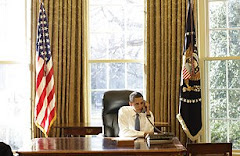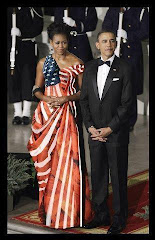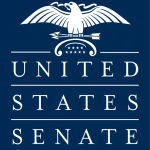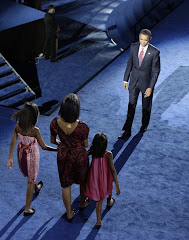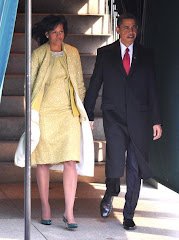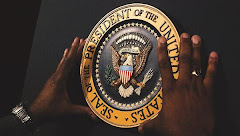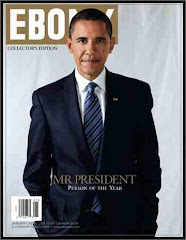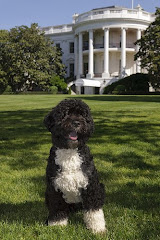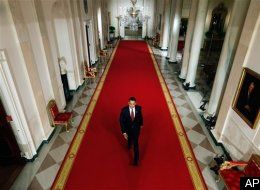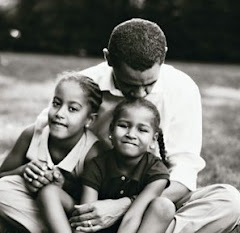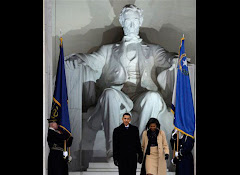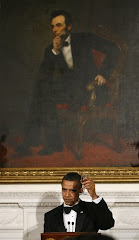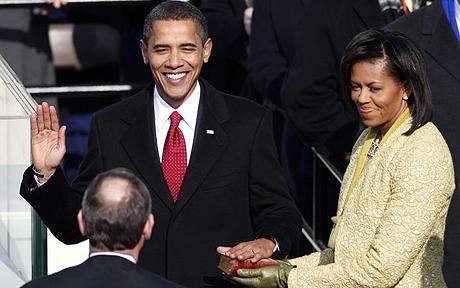
Article by Seth Colter Walls
In addition, the report on Iraq war intelligence harshly criticizes a Pentagon office for executing "inappropriate, sensitive intelligence activities" without the proper knowledge of the State Department and other agencies.
In addition to judgments that could prove troublesome for the White House and make waves in the presidential race, the report also contains some stinging minority reports from Republican committee members who allege that Democrats turned the intelligence review process into a "partisan exercise."
However, when the GOP controlled the intelligence committee and steered its "Phase I" reporting on the use of Iraq war intelligence, critics complained that tough questions about the Bush administration's actions had been kicked down the road, and thus required a second round of fact finding -- dubbed "Phase II." The committee's delay in producing that full report to the public was seen by Democrats as evidence of a stonewalling campaign executed by President Bush's Republican Senate allies.
Former Committee Chairman Sen. Pat Roberts (R-KS) often vacillated over whether or not the report was worth completing, first promising in 2004 that the work would be finished, and then calling it a "monumental waste of time" later in 2005. When Democrats gained control of the Senate after the 2006 midterm elections, they gained a majority of seats on the committee and set the course for the production of the final reports. Whether by partisan design or simple chance, however, the committee managed to save some of the best questions for last.
The "Phase II" report states -- in terms clearer than any previous government publication -- that there was no operational relationship between Al Qaeda and Saddam Hussein, that Bush officials were not truthful about the difficulties the United States would face in post-war Iraq and that their public statements did not reflect intelligence they had at the time, and, specifically, that the intelligence community would not confirm any meeting between Iraqi officials and Mohamed Atta -- a claim that was nevertheless publicly repeated.
"Before taking the country to war, this Administration owed it to the American people to give them a 100 percent accurate picture of the threat we faced. Unfortunately, our Committee has concluded that the Administration made significant claims that were not supported by the intelligence," Rockefeller said in a statement provided to The Huffington Post.
"In making the case for war, the Administration repeatedly presented intelligence as fact when in reality it was unsubstantiated, contradicted, or even non-existent. As a result, the American people were led to believe that the threat from Iraq was much greater than actually existed. ... There is no question we all relied on flawed intelligence. But, there is a fundamental difference between relying on incorrect intelligence and deliberately painting a picture to the American people that you know is not fully accurate."
In a minority report authored by Sens. Orrin Hatch, Christopher Bond and Richard Burr, the Republicans accuse committee Democrats of committing a key error of governmental logic. "Intelligence informs policy. It does not dictate policy," they wrote. "Intelligence professionals are responsible for their failures in intelligence collection, analysis, counter-intelligence and covert action. Policymakers must also bear the burden of their mistakes, an entirely different order of mistakes. It is a pity this report fails to illuminate this distinction."
The key findings released by Rockefeller and his divided committee brings the five-part "Phase II" of the committee's report on prewar intelligence to completion. The investigation's first phase was released on July 2004, and two less controversial parts of "Phase II" were declassified in September 2006.
The potential election year impact of these latest findings is uncertain. On the stump, Sen. John McCain has explained his support of the "surge" strategy in Iraq by saying the country has become the "central front" in the war on terror -- a framing that attempts to shoot past the question of Iraq's status in the terror hierarchy during the 2003 campaign waged in Congress to authorize military action.
Still, the breadth of the Committee's citations of examples in which the Bush administration's comments were not supported by intelligence could reignite public dissatisfaction over the war. According to a release from Rockefeller's office that was provided to The Huffington Post, these examples include:
-- Statements and implications by the President and Secretary of State suggesting that Iraq and al-Qa'ida had a partnership, or that Iraq had provided al-Qa'ida with weapons training, were not substantiated by the intelligence.
-- Statements by the President and the Vice President indicating that Saddam Hussein was prepared to give weapons of mass destruction to terrorist groups for attacks against the United States were contradicted by available intelligence information.
-- Statements by President Bush and Vice President Cheney regarding the postwar situation in Iraq, in terms of the political, security, and economic, did not reflect the concerns and uncertainties expressed in the intelligence products.
-- Statements by the President and Vice President prior to the October 2002 National Intelligence Estimate regarding Iraq's chemical weapons production capability and activities did not reflect the intelligence community's uncertainties as to whether such production was ongoing.
-- The Secretary of Defense's statement that the Iraqi government operated underground WMD facilities that were not vulnerable to conventional airstrikes because they were underground and deeply buried was not substantiated by available intelligence information.
-- The Intelligence Community did not confirm that Muhammad Atta met an Iraqi intelligence officer in Prague in 2001 as the Vice President repeatedly claimed.
"It has been four years since the Committee began the second phase of its review," Sen. Dianne Feinstein wrote in her note attached to the report. "The results are now in. Even though the intelligence before the war supported inaccurate statements, this Administration distorted the intelligence in order to build its case to go to war. The Executive Branch released only those findings that supported the argument, did not relay uncertainties, and at times made statements beyond what the intelligence supported."





